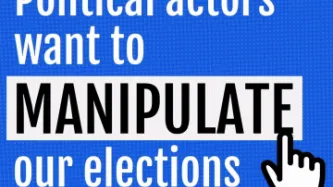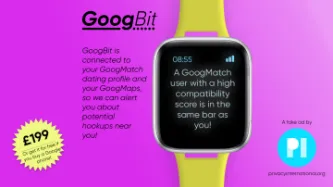Search
Content type: Case Study
The Peruvian government has a history of collaboration with the private sector in developing technology with the alleged purpose of providing greater security to citizens. The most recent example, the smartphone application "Peru En Tus Manos" launched in the context of the Covid-19 crisis, has been developed in a similar fashion and currently collects geolocation data on more than a million users. Although Peru has a proper legal framework for public private partnerships, developments are…
Content type: Report
National identity systems naturally implicate data protection issues, given the high volume of data necessary for the systems’ functioning.
This wide range and high volume of data implicates raises the following issues:
consent as individuals should be aware and approve of their data’s collection, storage, and use if the system is to function lawfully. Despite this, identity systems often lack necessary safeguards requiring consent and the mandatory nature of systems ignores consent…
Content type: Report
While identity systems pose grave dangers to the right to privacy, based on the particularities of the design and implementation of the ID system, they can also impact upon other fundamental rights and freedoms upheld by other international human rights instruments including the International Covenant on Civil and Political Right and the International Covenant on Economic, Social and Cultural Rights such as the right to be free from unlawful discrimination, the right to liberty, the right to…
Content type: Examples
The outsourcing company Serco, which the UK government has contracted to perform contact tracing, accidentally shared the email addresses of almost 300 of the contact tracers it hired when a staff member sent an introductory email and used CC rather than blind CC. Serco does not intend to refer itself to the Information Commissioner's office.
Writer: Ross Hawkins
Publication: BBC
Content type: News & Analysis
Banning TikTok? It's time to fix the out-of-control data exploitation industry - not a symptom of it
Chinese apps and tech companies have been at the forefront of the news recently. Following India's ban of 59 chinese apps in July, President Trump announced his desire to ban TikTok, shortly followed by his backing of Microsoft's intention to buy the US branch of its parent company ByteDance. Other than others lip syncing his public declaration, what does President Trump fear from this app, run by a firm, based in China?
It's all about that data
One clear answer emerges: the exploitation of…
Content type: Explainer
At first glance, infrared temperature checks would appear to provide much-needed reassurance for people concerned about their own health, as well as that of loved ones and colleagues, as the lockdown is lifted. More people are beginning to travel, and are re-entering offices, airports, and other contained public and private spaces. Thermal imaging cameras are presented as an effective way to detect if someone has one of the symptoms of the coronavirus - a temperature.
However, there is little…
Content type: Examples
After ORG asked questions via its legal representative, AWO’s Ravi Naik, the UK’s Department of Health and Social Care agreed to change the period it would retain Test and Trace data from 20 years to eight. Public Health England manager Yvonne Doyle explained that the novelty of COVID-19 was the reason for keeping the data longer, in case PHE needed to get back in touch with those who had tested positive with additional information.
Publication: ZDNet
Writer: Daphne Leprince-Ringuet…
Content type: Examples
In early July the Open Rights Group issued a pre-action legal letter to UK health secretary Matt Hancock and the Department of Health and Social Care saying they have breached requirements under the Data Protection Act 2018 and GDPR by failing to conduct an impact assessment for the Test and Trace system. ORG and its lawyers, AWO, had been asking for details of the DPIA since the beginning of June, a few days after the system was launched. In their response, the DHSC’s lawyers said “there were…
Content type: Advocacy
Identification systems across the world increasingly rely on biometric data. In the context of border management, security and law enforcement, biometric data can play an important role in supporting the investigation and prevention of acts of terrorism.
This Briefing aims to map out some of the implications of the adoption of identification systems based on biometrics.
Content type: Examples
Hours before OpenDemocracy filed suit to compel the UK government to release all the contracts governing its deals with a list of technology firms including Amazon, Microsoft, Google, Palantir, and Faculty, the UK government released the contracts. Faculty is being paid more than £1 million to provide AI services for the NHS, and the companies involved in the NHS data store project, including Faculty and Palantir, were originally granted intellectual property rights and were allowed to train…
Content type: Long Read
What Do We Know?
Palantir & the NHS
What You Don’t Know About Palantir in the UK
Steps We’re Taking
The Way Forward
This article was written by No Tech For Tyrants - an organisation that works on severing links between higher education, violent tech & hostile immigration environments.
Content type: Video
Immediately following the UK general election in December 2019, we worked with Open Rights Group to commission a YouGov poll about public understanding and public opinion about the use of data-driven campaigning in elections.
The poll used a representative sample of 1,664 adults across the UK population.
'Data-driven political campaigning' is about using specific data about you to target specific messages at you. So, for this might involve knowing that you are, for example, likely to…
Content type: Call to Action
Google wants to know everything about you.It already holds a massive trove of data about you, but by announcing its plans to acquire the health and fitness tracker company Fitbit, it now clearly wants to get its hands on your health too. We don’t think any company should be allowed to accumulate this much intimate information about you. This is why we’re trying to stop its merger with Fitbit.Google and Fitbit need the European Commission’s approval before they can merge. The merger would have…
Content type: Explainer
Hello friend,
You may have found your way here because you are thinking about, or have just submitted, a Data Subject Access Request, maybe to your Facebook advertisers like we did. Or maybe you are curious to see if Policing, Inc. has your personal data.
The right to access your personal data (or access right) is just one of a number of data rights that may be found in data protection law, including the European Union's General Data Protection Regulation, better known as "GDPR", which took…
Content type: Examples
The AI firm Faculty, which worked on the Vote Leave campaign, was given a £400,000 UK government contract to analyse social media data, utility bills, and credit ratings, as well as government data, to help in the fight against the coronavirus. This is at least the ninth contract awarded to Faculty since 2018, for a total of at least £1.6 million. No other firm was asked to bid on the contract, as normal public bodies’ requirements for competitive procurement have been waived in the interests…
Content type: Examples
The lack of data protection laws and the absence of a privacy commission are contributing factors to Pakistan’s failure to investigate or remedy security flaws in the country’s recently-launched COVID-19 tracking technology, which partially depends on a system originally developed to combat terrorism. While there are no reported cases of harassment or targeting based on the leak online of the personal details of thousands of COVID-19 volunteers, the lack of response fails to boost citizens’…
Content type: Frequently Asked Questions
The right to access your personal data (or access right) is just one of a number of data rights that may be found in data protection law, including the European Union's General Data Protection Regulation. Data Subject Access Requests, or DSARs, have helped us several times understand the extent of data companies and governments might hold on us, how this data might be shared among various recipients, or what other third parties a company might be using to obtain additional data and enrich their…
Content type: News & Analysis
This week, we read that a former Apple contractor who blew the whistle on the company’s programme to listen to users’ Siri recordings has decided to go public, in protest at the lack of action taken as a result of the July 2019 disclosures. The news adds to a series of revelations that have been reported over the past months.
While the issue raises serious questions regarding the compatibility of such practices with data protection laws, at the same time, it highlights a wider problem that…
Content type: News & Analysis
GDPR was hard won. PI, together with other civil society actors, fought from the beginning for a version of the law that offers the strongest rights and protections in the face of intense industry lobbying.
Holding the hidden data ecosystem to account
Two years ago, we committed to using GDPR to seek to hold to account the hidden data ecosystem - those companies that amass and exploit large amounts of our data for profit.
Here’s some of the action we’ve taken:
In Nov 2018,…
Content type: Examples
Under the country's emergency laws, on May 4 the Hungarian government announced it would suspend parts of GDPR and exempted authorities from key provisions such as subject access rights, the right to request erasures, and providing notice that personal information is being collected and stored as long as the data is being collected under the rubric of coronavirus-related health protection.
The changes will remain in place until the government declares the end of the emergency. Opposition…
Content type: Examples
Only 16% of Australians had downloaded the country's COVIDSafe app by May 3, a week after its launch on April 26, even though most said they support the federal government's coronavirus contact tracing app. In an Ipsos poll, 80% of those who said they were unlikely to download the app cited privacy concerns such as who holds and has access to the data, and which country's law applies. The government has said its goal is for at least half of the population to download and install the app.…
Content type: Examples
A parliamentary panel granted Israel's Shin Bet security service an additional three weeks to use mobile phone data to track people infected with the coronavirus; prime minister Benjamin Netanyahu had requested a six-week extension while his government drafts legislation to regulate the data use in line with requirements imposed by the Israeli Supreme Court. Testimony given to the parliament's intelligence subcommittee showed that the Shin Bet surveillance was the reason it was possible to…
Content type: Long Read
Photo by Cade Roberts on Unsplash
For those of you who don't spend the most productive part of your day scanning the news for developments about data and competition, here's what has been going on in the UK since summer 2019.
Basically, the UK competition authority started an investigation into online platforms and digital advertising last summer, and issued their preliminary findings in December 2019, concluding that Facebook and Google are very powerful in the search engine and social media…
Content type: Advocacy
Background
In February 2020, the Australian Competition and Consumer Commission (ACCC) commenced an investigation into the proposed acquisition of Fitbit by Google, which was originally announced in November 2019.
Google, whose parent company, Alphabet, in 2018, generated 85% of its $136.22 billion in revenue from delivering targeted advertisements, has a past of competition law infringements in the European Union. Fitbit is a company that produces and sells health tracking technologies and…
Content type: Examples
GDPRHub is collecting a list of projects around the world that are using personal data to combat the novel coronavirus. The list is divided into categories such as decentralised contact tracing apps and frameworks; centralised contact tracing systems; lockdown enforcement; self-assessment apps; mapping projects; and statistical analysis. The site also tracks COVID-19-releated data protection issues.
Source: https://gdprhub.eu/index.php?title=Projects_using_personal_data_to_combat_SARS-…
Content type: Examples
The US Department of Health and Human Services has announced it will waive penalties for violations of the Health Insurance Portability and Accountability Act, which protects patient data privacy. HHS argued that in the nationwide emergency caused by the COVID-19 pandemic, greater latitude is needed to allow doctors to provide telehealth services and use new technologies such as one-on-one video conferencing apps to communicate with patients. However, the agency said that public-facing…
Content type: Examples
On March 20, the UK's Department of Health and Social Care published a notice providing legal backing for the NHS to set aside the duty of patient confidentiality as part of its response to the COVID-19 pandemic. As long as it is to fight the coronavirus, NHS organisations and GPs may share whatever patient data they deem necessary.
Source: https://twitter.com/halhod/status/1245297265054367744/photo/1
Writer: Hal Hodson
Publication: Twitter
Content type: Examples
On March 24 the German Bundestag passed a comprehensive amendment to the Infection Protection Act that authorises the Federal Ministry of Health to implement measures for medical care without the consent of the Federal Council. These include the ability to impose curfews and travel restrictions, override patent protection for medical products, and issue ordinances creating other exceptions to the law. The Federal Data Protection Commissioner criticised the proposals because he doubted whether…
Content type: Examples
A review of European privacy laws considers whether the tracking and monitoring methods China used to shut down the COVID-19 epidemic are in compliance with GDPR. The French data protection authority CNIL says employers are not allowed to take mandatory temperature readings from employees or visitors or require them to fill out compulsory medical questionnaires. Italy passed emergency legislation requiring anyone who has recently stayed in an at-risk area to notify health authorities. Germany…
Content type: Examples
A task force at the Italian Ministry of Innovation, in collaboration with the University of Pavia to leverage big data technologies to deal with COVID-19, after the WHO advised governments that lockdowns alone are not enough, and that testing, isolation, and contact tracing are crucial. The effort is beginning with anonymised data provided by Facebook; Italian telcos including Tim, Vodafone, Wind Tre, and FastWeb, via their Asstel trade association, have also offered anonymous datasets…














